Blogs
Goodbye Prague, hello Berlin!
Fri, 09/19/2014 - 23:08 — Zipf
People from across the world, with diverse backgrounds and from different fields, academics and non-academics alike; very inspiring and informative talks, presentations and posters, and fruitful discussions; a great venue and splendid weather. This was Tropentag 2014 in Prague. The Czech University of Life Sciences Prague hosted this year's International Conference on Research on Food Security, Natural Resource Management and Rural Development.
MANY THANKS to the speakers and presentations, the participants and, of course, the organizers of this brilliant event!
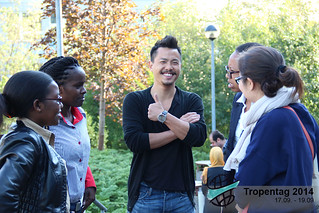

Pictures from Tropentag 2014
Wed, 09/17/2014 - 15:39 — Zipf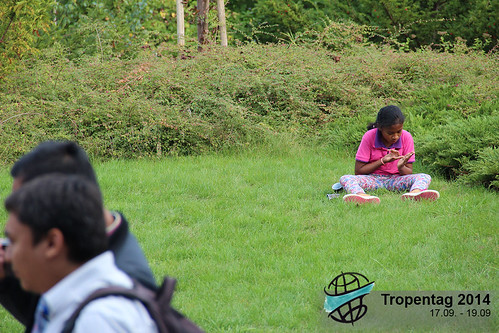 To watch pictures, please go to:
https://www.flickr.com/photos/tropentag/
To watch pictures, please go to:
https://www.flickr.com/photos/tropentag/
Anything birds eat, human can eats!
Sun, 09/22/2019 - 13:25 — Ahmed
“May be, I would try insects, but caterpillars mmh!” one person was heard in the gathering......................
Did you know that insects and caterpillars are also food for human? My grandmother once told me “anything birds eat, human can eats! “According to Christian Ratompoarison and others findings, there are about 65 edible insects identified in Madagascar. Strange?
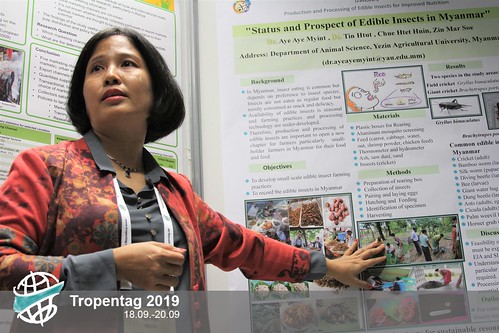
Insects and caterpillars were considered as food for poor households or communities during the famines. Surprisingly, the trend is now changing worldwide. In Tropentag 2019, number of researchers presented their research findings about edible insects and caterpillars in Africa and Asia. Edible insects and caterpillars form sustainable ecosystem between environments and nutrition. Case studies from Madagascar, Myanmar, Kenya and Uganda were presented during the poster sessions in Tropentag 2019.
Policy briefs would simplify science: are policymakers and scientists ready?...
Sat, 09/21/2019 - 15:41 — Ahmed
Science and other knowledge are not used effectively in the policymaking process. Most of the time, there is a disconnect between scientists and politicians, they contradict each other due to different values related to their involvement in the science-policy interface.
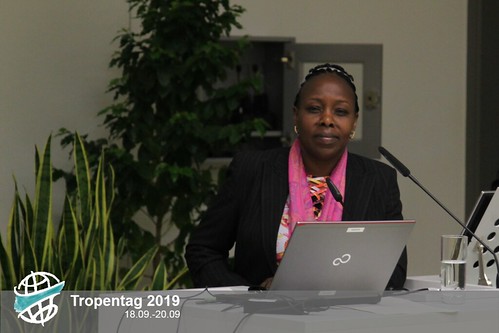

Immaculate N. Maina- County Minister of Agriculture, Livestock and Fisheries, Nakuru County, Kenya was among the keynote speaker who gave a great speech on Scientific knowledge transfer and the Science-Policy Interface: Bridging the Gaps and Overcoming the Traps ” Scientists need opportunities to engage with policy makers. For instance, the Tropentag conference could be one of the platforms. Having open dialogues can enhance the knowledge hence understanding in the policymaking process. The academic research findings are to be consumables to the community not just end in conferences and publications.” - Immaculate N. Maina
The Most Sustainable Tropentag Ever
Sat, 09/21/2019 - 10:08 — lloyd
Sustainability is founded on the three pillars: economics, environmentalism and social consciousness. The efforts to create a more sustainable conference at this year’s Tropentag cannot be unnoted.
Empowering the next generation of food security innovators
Sat, 09/21/2019 - 09:48 — Martinelli
“This is the most connected generation of our entire history”, said Bianca Costa, an inspiring Brazilian student I met (from many others!) today at Tropentag. In a fun interview in Portuguese, she explained that this is the reason why Though for Food believes young entrepreneurs will change the world, or rather, the food production world.
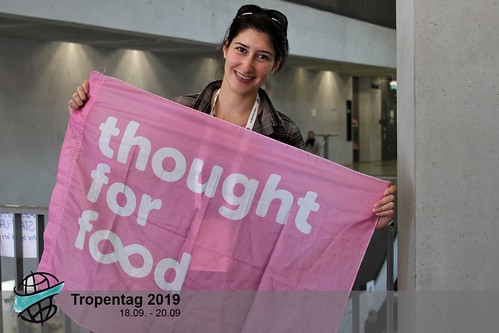
As an ambassador of this NGO, Bianca came to Tropentag to tell young innovators that their ideas have value. More precisely, $10,000. Thought for Food awards young entrepreneurs working for food security, not only in Germany but all over the world. Interested? So be prepared: the TFF Challenge opens on October 16th. The best ideas will receive access to digital labs, mentoring programs and network opportunities, besides the final prize: $2500, $5000 and $10,000 to kick off their projects.

As an ambassador of this NGO, Bianca came to Tropentag to tell young innovators that their ideas have value. More precisely, $10,000. Thought for Food awards young entrepreneurs working for food security, not only in Germany but all over the world. Interested? So be prepared: the TFF Challenge opens on October 16th. The best ideas will receive access to digital labs, mentoring programs and network opportunities, besides the final prize: $2500, $5000 and $10,000 to kick off their projects.
Certified coffee, good for the planet?
Sat, 09/21/2019 - 09:35 — Martinelli
You crave coffee, go to the market and must choose between two options: fairtrade organic versus non-certified coffee. The first option costs few cents more, but as the conscious consumer you are, you decide to choose the first one. You go home happy with your coffee and satisfied for your positive impact in the world. Right?
Not so fast, consumer. Research findings from the Division of Bioeconomics at KU Leuven showed that Voluntary Sustainability Standards (VSS) for food production, such as Fairtrade and Rainforest Alliance, might not deliver all the benefits they promise. By looking at economic and ecological indicators in two coffee producer countries, Ethiopia and Uganda, they discovered that VSS do bring positive effects but, for each benefit they bring, a drawback is generated: the famous trade-offs!
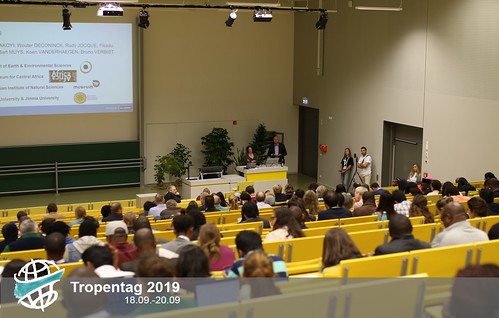
Not so fast, consumer. Research findings from the Division of Bioeconomics at KU Leuven showed that Voluntary Sustainability Standards (VSS) for food production, such as Fairtrade and Rainforest Alliance, might not deliver all the benefits they promise. By looking at economic and ecological indicators in two coffee producer countries, Ethiopia and Uganda, they discovered that VSS do bring positive effects but, for each benefit they bring, a drawback is generated: the famous trade-offs!

Hemp: grow it, not burn it!
Fri, 09/20/2019 - 18:23 — Oladokun
Danilo Crispim Massuela shares a compelling revelation about the potentials of Hemp as a socio-economic driver via his oral presentation at the #Tropentag2019.

The legality of hemp production continues to be a subject of global contention, as it varies widely across different countries. Danilo’s oral presentation takes us on a mental journey to the Quilombola Communities of the Brazilian São Francisco Valley, where hemp production should not be considered an option but a matter of necessity. This region is the highest producer of Cannabis in the country but rural poverty, hunger, social inequalities and food insecurity are the realities on the ground. This community are literarily so rich, yet so poor.

The legality of hemp production continues to be a subject of global contention, as it varies widely across different countries. Danilo’s oral presentation takes us on a mental journey to the Quilombola Communities of the Brazilian São Francisco Valley, where hemp production should not be considered an option but a matter of necessity. This region is the highest producer of Cannabis in the country but rural poverty, hunger, social inequalities and food insecurity are the realities on the ground. This community are literarily so rich, yet so poor.




